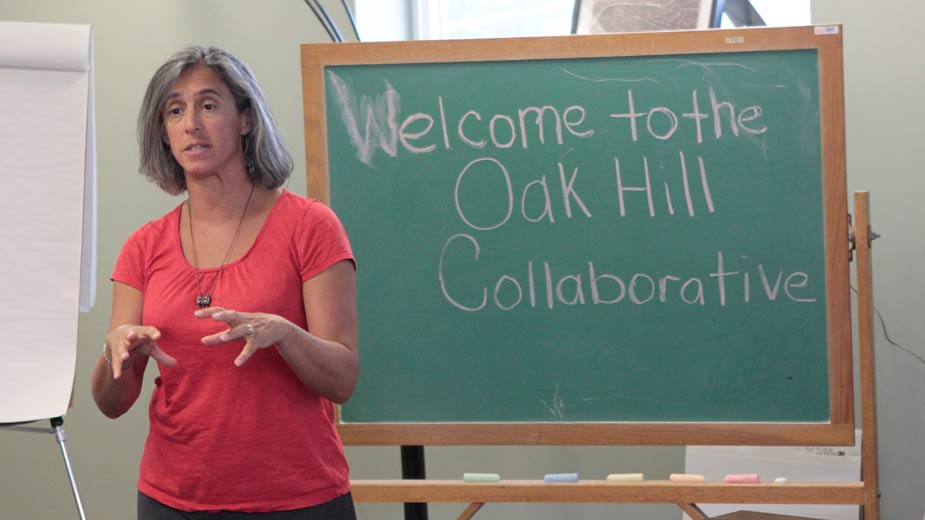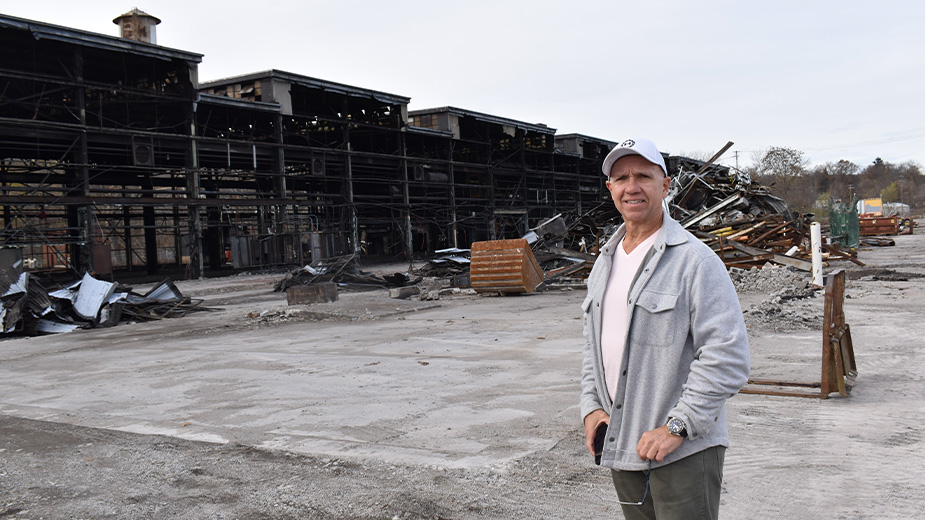Recast Cities with Small Manufacturers, Speaker Tells Collaborative
YOUNGSTOWN, Ohio – When President Donald Trump spoke last month at the Covelli Centre, he talked about the thousands of steel jobs lost in the wake of Black Monday – and he promised to help bring back large-scale manufacturing to the Valley’s empty factories. “We’re gonna fill up these factories or rip them down and build new ones,” Trump said.
But the nature of manufacturing has changed, Ilana Preuss, founder of Recast City LLC, explained Wednesday night at the Oak Hill Collaborative.
Modern manufacturers are much different than a half-century ago. “Most of them are very small,” Preuss said of today’s firms. The Brier Hill Works of the Youngstown Sheet & Tube Co. once employed 5,000, but 70% of today’s manufacturing companies have 20 or fewer employees, she said.
New, small-scale manufacturing firms are “good neighbors,” Preuss said. They pollute far less, are much quieter and they’re helping to revitalize downtowns and urban neighborhoods. Helping these small companies grow, whether a woodworking shop, a chocolate maker or brewer, makes communities more stable and creates jobs with middle-class wages.
“Those are good jobs that are going to stay in our communities and help stabilize them,” she said. “If we’re thinking about how we bring more living wages to our community, how we help break cycles of poverty, these jobs are really a key part of it.”
Such enterprises rarely require large machinery or a huge amount of space. “I’m talking about businesses that could fit into 500 square feet, 2,000 square feet,” she explained. Based on her background in urban planning, Preuss emphasized that the location of these businesses is as important as what they produce.
“Production in the city is the key,” she said.
Companies engaged in additive manufacturing and small businesses emerging from “maker spaces” are joining older, small-scale manufacturers. Shared-use spaces, such as kitchen incubators, are helping to launch food production businesses. Maker spaces, usually community centers with resources such as 3-D printers, are also nurturing manufacturing businesses, Preuss said. Maker industries, or modern day artisans, are creating individual products, usually by hand and usually with only two or three employees.
Preuss was invited to Youngstown through a grant awarded to the Eastgate Regional Council of Governments by Smart Growth America, which describes itself as dedicated to building equitable, environmentally sustainable cities and neighborhoods. Preuss is a nationally recognized expert on the maker movement.
“I really wanted to bring in a fresh set of eyes,” said Sara Wenger, economic development program manager for Eastgate. “How can we carry our legacy of manufacturing forward?”
Preuss asked her audience to list Youngstown’s assets and its disadvantages. The resources at the Oak Hill Collaborative, including its Raspberry Pi program and 3-D printing technology were viewed as assets as is the very low cost of living in the city.
Lack of access to capital was a chief concern for those interested in starting a small manufacturing business. “Access to capital is the No. 1 issue,” said James Dittrich, adjunct instructor in computer science and information systems at Youngstown State University.
Entrepreneurs in Youngstown also lack access to programs such as EforAll and Co. Starters, which have helped launch businesses in other communities, Preuss said. “These are existing training programs that help take a person who has a business concept through everything from business planning to marketing and branding,” she said. “So they can understand all of those things before they ever invest a dollar.”
Youngstown offers properties business owners can afford, something lacking in many urban areas, Preuss added. “That’s a huge asset for people to recognize here,” she said.
Oak Hill Collaborative Executive Director Pat Kerrigan kept nodding his head in agreement during much of Preuss’ presentation.
“We have been working at neighborhood revitalization based around community activities and businesses,” he said of the work at the collaborative. “Manufacturing now isn’t smoke stacks or dirty water. It’s making jelly, or doing a business with the internet. It’s not the old factory.”
Copyright 2024 The Business Journal, Youngstown, Ohio.



